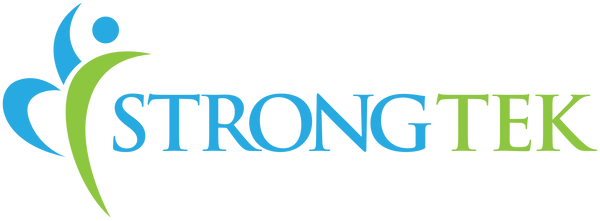
New Year’s resolutions might seem like the perfect opportunity to reinvent yourself, but when was the last time those resolutions lasted more than a week? When you feel like you aren’t making any progress toward an enormous goal, it can be disheartening and downright discouraging.
It’s better to set realistic goals you can actually accomplish instead of stretch goals that are impossible to achieve. When you start with attainable goals, you’ll be able to see progress right away, keeping you motivated to stick with it until the end.
This article will explore the key elements of an effective New Year’s resolution that you’ll actually keep as well as inspiration for New Year’s resolutions in three main categories: mental health, physical fitness, and dietary wellness.
What are the key elements of a great New Year’s resolution?
January is the month when gyms are typically packed to the brim with individuals working on their New Year’s resolutions. But, by February, most will have fallen off and by December, some 80% of individuals will forget their resolutions altogether.
Stop setting yourself up for failure, and join the 20% of individuals who are accomplishing their goals for the year. When you develop your New Year’s resolutions, make sure they’re all SMART goals. That means each and every one of your resolutions should be specific, measurable, achievable, relevant, and time-bound.
For example, deciding to “work out more” in the new year is not a SMART goal because it isn’t very specific, there’s no way to measure it, and there are no time limitations.
A SMART goal of the same theme would be to “Do 30 minutes of cardio at the gym 3 days each week until the end of the year.” This goal is specific, measurable, achievable, relevant, and there’s a time constraint.
Using the SMART goal framework holds you more accountable to achieving your goals. Since your goal is specific and measurable, it’s very clear if you met it or not. Trying to “work out more” leaves more room for interpretation, ultimately leaving you less likely to focus on your true goal.

How to carry your New Year’s resolution through to the end of the year
On your first day in the gym, it’s probably a little hard, but you’re typically excited. Your main focus is on the future and how awesome you’ll feel once you’re in shape. After a few weeks of working out, it’s easy to lose sight of the bigger end goal.
When developing SMART goals, each one should be tied to a larger achievement you deeply care about. Working out 3 times per week isn’t about doing cardio, it’s about getting in better shape so you can live longer for your loved ones. Working toward that new promotion isn’t all about the title change, it’s about being about to put extra money away each month and finally take that well-deserved vacation.
If you need to, make a reminder for yourself about what each of your New Year’s resolutions is really about. Toss a picture of your dream vacation spot on your work monitor or a picture of your family in your gym locker. When you’re sweating it out in cardio, it will be easier to push through envisioning that larger goal for yourself.

Another way to keep yourself on track is by involving an accountability partner. Ask a trusted friend to check up regularly on whether or not you’re keeping pace with your goals. Share with them what you’re working towards and ask your friend to remind you of the bigger picture anytime you fall off track.
New Year’s resolutions you can actually keep
Need some inspiration for developing your own New Year’s resolutions? Explore these SMART healthy goals below for ideas. Remember to tie each goal back to a larger personal goal of your own.
Mental health
- Get at least 15 minutes of “sunlight” every day. If it’s cloudy, use an indoor “sunlight” lamp.
- Practice mindfulness at the beginning and end of each day.
- Reach out to one family member or friend each week.
- Get between 6-8 hours of sleep each night.
Physical fitness
- Do cardio and weights 30 minutes per day, three days per week.
- Stay active during the workday by getting up at least once every two hours for 5-10 minutes.
- Use active office equipment for at least one hour per day while working.
Dietary wellness
- Drink eight glasses of water per day. OR Replace two sodas with glasses of water per day.
- Meal prep three times per week.
- Try one new dish each week.
Stay fit with StrongTek
During a global pandemic, it’s important to take care of your body and your mind, and we’re here to help. We’re constantly rolling out additional tutorials, helpful tips, and other resources to help you stay healthy both mentally and physically. Please subscribe to our newsletter to get our most recent articles delivered straight to your inbox. As a bonus, subscribers will receive exclusive offers and inside information about upcoming products.

